Confirmed speakers include:
 Jeff Bladen
Jeff Bladen
Head of Energy, Verrus Data Centers
Jeff Bladen brings more than 25 years of experience developing the energy grid. Prior to Verrus, Bladen served as Meta’s Global Director of Energy where he led teams responsible for the development and execution of Meta’s energy strategy across its data center fleet. Over his career in energy, he also served in multiple executive roles at the Midcontinent Independent System Operator (MISO) supporting development and execution of MISO’s markets and technology strategies, and leadership roles at companies including PJM Interconnection, Constellation Energy, DNV GL Energy, and Gamesa. Bladen holds an M.B.A. with honors from the Stern School at New York University and a B.A. from the Maxwell School of Public Affairs at Syracuse University.
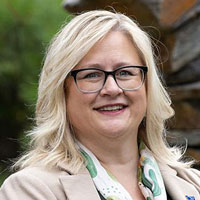 Lori Bennear
Lori Bennear
Stanback Dean, Nicholas School of the Environment, Duke University
Lori Bennear is Stanback Dean of the Nicholas School of the Environment (NSOE). Bennear is a professor of Energy Economics and Policy at NSOE and holds secondary appointments at Duke in the Department of Economics and in the Sanford School of Public Policy. She received her Ph.D. in Public Policy from Harvard University (2004) and also earned an MA in Economics from Yale University (1996) and an AB in Economics and Environmental Studies from Occidental College (1995).
Her research evaluates the effectiveness of environmental policies including information disclosure laws, management-based regulations, liability regimes, and demand-side management programs. She has applied these assessments across many global environmental domains including in the energy, toxicology, and drinking water fields. Her work is interdisciplinary and has resulted in numerous scientific publications in journals ranging from economics to general interest science journals.
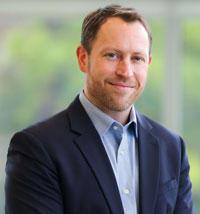 David Brown
David Brown
Snow Family Business Professor in Decision Sciences and Faculty Director for the Center for Energy, Development and Global Environment (EDGE), Fuqua School of Business, Duke University
David B. Brown is the Snow Family Business Professor in Decision Sciences and the faculty director for the Center for Energy, Development and Global Environment (EDGE) at Duke University's Fuqua School of Business. His research focuses on designing and analyzing algorithms for decision problems involving uncertainty and complex tradeoffs. Brown is actively working with researchers at Duke and other institutions on improving the efficiency and reliability of electricity grid operations in the face of uncertainty in renewable energy sources. Brown is an Area Editor for the Decision Analysis Area at the journal Operations Research, and the Institute for Operations Research and the Management Sciences (INFORMS) has recognized his research with several awards. Brown received a bachelor's and master's of science in electrical engineering from Stanford University and has been on the faculty at Fuqua since receiving his Ph.D. in electrical engineering and computer science from Massachusetts Institute of Technology.
 Scott L. Caruso
Scott L. Caruso
Cofounder and CEO, GridVisibility
Scott Caruso is an entrepreneur and seasoned business creator with a passion for leading transformations. Today, Caruso leads GridVisibility, inc. which leverages the existing broadband network infrastructure to rapidly deliver high-fidelity, continuous point-on-wave, GPS-time-synchronized streaming data to realize the modernized, smart grid.
Caruso, a geek, business executive, and strategic visionary, inspires teams and partners to disrupt markets through innovative technology, products, and business models. He started programming on paper tape in the ’70s, had an email address on the ARPAnet in ’85, and joined Sun Microsystems in the late ’80s. He also cofounded a successful internet service provider in the ’90s, spent a decade as a venture capital investor in high-tech startups, founded and led a cleantech company, and most recently led strategic ventures at CableLabs developing the GridVisibility technology.
 Aaron (Ronnie) Chatterji
Aaron (Ronnie) Chatterji
Chief Economist, OpenAI; Mark Burgess & Lisa Benson-Burgess Distinguished Professor of Business and Public Policy, Duke University
Aaron “Ronnie” Chatterji, Ph.D., is OpenAI's first chief economist. He is also the Mark Burgess & Lisa Benson-Burgess Distinguished Professor of Business and Public Policy at Duke University. Chatterji works at the intersection of academia, public policy, and business, investigating the most important forces shaping our economy and society.
Chatterji is committed to public service, both at the national level and in his home state of North Carolina. He most recently held senior economic policy positions in the Biden Administration. Chatterji served as the White House CHIPS coordinator, overseeing the implementation of the $52 billion CHIPS and Science Act, one of the largest industrial policy initiatives in a generation. He was also the Acting Deputy Director of the White House National Economic Council, overseeing the Administration’s work on supporting American manufacturing, building more resilient supply chains, and driving technological innovation. Prior to his White House role, he served as the Chief Economist of the U.S. Department of Commerce, where he was the principal economic adviser to the Secretary of Commerce and responsible for policy development related to U.S. competitiveness, innovation, trade and economic growth.
Chatterji previously worked for President Obama as a senior economist at the White House Council of Economic Advisers. He served on the North Carolina FIRST Commission and the Governor’s Entrepreneurial Council, two statewide bodies advising Governor Roy Cooper on economic policy. During his sabbatical leave in 2020, Chatterji ran for state treasurer of North Carolina, winning the statewide primary election and earning more than 2 million votes in the general election. Chatterji is on leave as a research associate at the National Bureau of Economic Research and was previously a visiting associate professor at The Harvard Business School. He also holds a secondary appointment at Duke’s Sanford School of Public Policy. Chatterji previously worked as a financial analyst at Goldman Sachs. He received his Ph.D. from the University of California at Berkeley and his B.A. in economics from Cornell University.
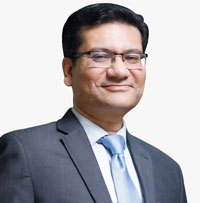 Anir Chowdhury
Anir Chowdhury
Executive Director, The Institutional Architecture Lab (TIAL); President, Digital Transformation Global (DXG) Foundation
Anir Chowdhury is a global leader, practitioner, advisor, speaker, and writer in public digital transformation and institutional redesign. As executive director of The Institutional Architecture Lab (TIAL), he advises governments, development agencies, and philanthropies on reimagining public institutions through innovative approaches, tools, and partnerships. As president of the Digital Transformation Global (DXG) Foundation, Chowdhury leverages decades of experience with UNDP and developing countries like Bangladesh to drive whole-of-society innovation ecosystems through digital public infrastructure, capacity-building, policy integration, institutional reform, and innovative financing. His work in Bangladesh has saved billions of dollars for millions of marginalized citizens by transforming traditional bureaucracies into citizen-centric service providers through public-private partnerships.
Chowdhury advises Rangeet, a global edtech company focused on children’s social, emotional, and ecological well-being. As a Rockefeller Foundation Bellagio Centre Fellow, he is blending his bottom-up in-the-trenches learning with his top-down policy experience from PM’s task forces, WEF and UN committees, and distilling that into a book and AI-enabled playbook for digital transformation of nations to disproportionately benefit the marginalized.
Chowdhury graduated magna cum laude in computer science and applied mathematics from Brown University and pursued postgraduate studies at Harvard, Columbia, Oxford, and other leading institutions. A Chevening Fellow and Honorary Professor at UCL’s Institute for Innovation and Public Purpose, he continues to shape global development through thoughts, actions and partnerships.
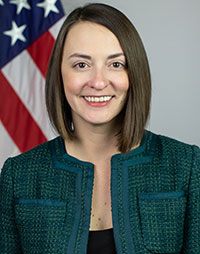
Kristina Costa
Former Deputy Assistant to the President and Director, Office of Clean Energy Innovation and Implementation
Kristina Costa served as Deputy Assistant to the President and Director of the Office of Clean Energy Innovation and Implementation in the Biden White House, managing the successful implementation of the clean energy and climate provisions of the Inflation Reduction Act. Costa managed a lean White House team and an interagency process that saw guidance issued on 23 clean energy tax provisions, obligated more than $98 billion in federal grants, and spurred more than $450 billion in private-sector clean energy investment. Prior to her White House role, Costa was senior advisor and speechwriter to Deputy Secretary of State Wendy Sherman. She also served in the Obama White House, on the 2016 Hillary Clinton campaign, and in the United States Senate, and has worked at the Center for American Progress and Fenway Strategies. Costa is a graduate of Wellesley College and the McCourt School for Public Policy at Georgetown University, where she was a McCourt Scholar.
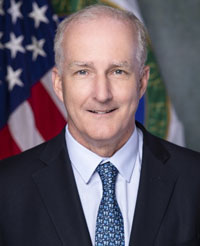 David Crane
David Crane
Former Undersecretary for Infrastructure, US Department of Energy
David Crane is a leading global voice in the field of sustainability, clean energy, and climate change. He has a unique perspective in his field, having served in an unusually wide range of roles as the long-term CEO of both a Fortune 200 energy company and a FTSE 100 company, a Senate-confirmed senior government official in the US Department of Energy, a clean energy financial entrepreneur, and as a director of multiple environmental nongovernmental organizations.
Most recently, as the first-ever undersecretary of infrastructure at the Department of Energy, he oversaw more than 1,800 professionals tasked with implementing 56 programs involving the commitment of more than $80 billion of grant funding and $120 billion of loans across the full range of emerging clean energy technologies. Previously, during his 12-year tenure at NRG Energy, led the company out of bankruptcy and transformed it into a $10 billion market cap, 11,000-employee industry leader in next-generation clean energy development, including building the largest solar photovoltaic and largest solar thermal installations in the world at the time, the largest post combustion carbon capture project, the first interoperable national electric vehicle charging network, and the first publicly traded yield co. Crane has won numerous environmental leadership awards and has written extensively on clean energy transition issues, primarily for Greenbiz (now Trellis). He is a graduate of Harvard Law School and Princeton University.
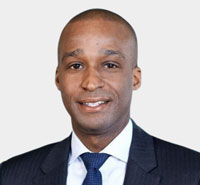 William Demas
William Demas
Head of Americas, Green Investments, Macquarie Group
William Demas is Head of Americas at Macquarie’s Green Investment Group. Demas rejoined Macquarie from Stonepeak Partners, where he was instrumental in leading the firm’s America's renewable energy and energy transition investment activities. Prior to Stonepeak, he spearheaded and led Copenhagen Infrastructure Partners (CIP) in the Americas. Prior to CIP, Will was a senior member of Macquarie Capital’s renewable energy principal and investment and advisory team and spent the early part of his career at Good Energies, one of the first dedicated clean technology venture funds. He began his career at Lazard, as a founding member of its Clean Technology and Renewable Energy advisory business.
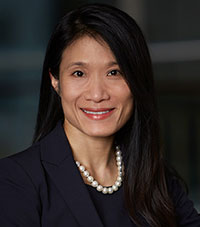 Anmay Dittman
Anmay Dittman
Managing Director, Lead Portfolio Manager for Climate Finance Partnership, BlackRock
Anmay Dittman is the head of the Climate Finance Partnership (CFP), BlackRock’s flagship blended finance fund that is mobilizing private capital into clean power and infrastructure investments in emerging markets and is also a senior investor on Global Infrastructure Partners Emerging Markets team. Dittman is responsible for portfolio construction and leading investments and strategy. She is a member of the CFP Investment Committee and Global Renewable Power Management Committee. Prior to her current position, Dittman was Head of Strategic Execution for BlackRock’s Real Assets business, where she led the development, management and execution of strategic initiatives for the platform.
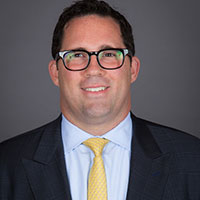 Chip Dunn
Chip Dunn
Chairman and Founder, Anovion Technologies
Chip Dunn brings more than 30 years of strategic advisory, corporate finance, structuring and principal investment experience to his positions as chairman of the board at Anovion and founder and CEO of Monomyth Group, Anovion’s lead investor.
Prior to founding Monomyth in 2017, Dunn served as managing director of BDT Capital Partners, a Chicago-based private investment firm with, at the time, over $12 billion assets under management, as well as the inaugural CEO of its London-based international business. Dunn was previously with several other investment banks’ mergers and acquisitions (M&A) departments in New York and Chicago. Over his career, Dunn has been involved with M&A transactions, public and private offerings, control, and structured minority investments totaling over $100 billion. Dunn holds a B.A. in Economics from Yale University and an M.B.A. from the Graduate School of Business at University of Chicago. In addition to his business interests, Dunn serves on the board of the Yale Football Association and is also a Yale Sterling Fellow.
 Jackson Ewing
Jackson Ewing
Director of Energy and Climate Policy, Nicholas Institute for Energy, Environment & Sustainability and Adjunct Associate Professor, Nicholas School of the Environment, Duke University
Jackson Ewing is director of energy and climate policy at the Nicholas Institute of Energy, Environment & Sustainability at Duke University. He holds additional appointments as an adjunct associate professor at the Nicholas School of the Environment, a faculty affiliate with the Duke Center for International Development at the Sanford School of Public Policy and the Duke Asian/Pacific Studies Center, and faculty lead for the Duke Kunshan University International Master of Environmental Policy program. Ewing’s work seeks to help facilitate energy transitions internationally and in the United States. His current projects focus on international climate finance and just energy transition partnerships, systems-level changes needed to meet net-zero goals in the United States, international carbon pricing and clubs, and US–China climate relations. Ewing has worked in more than 20 countries, and collaborates closely with actors in government, the private sector, civil society, and international organizations. He publishes widely and contributes to radio, television, and print media.
Prior to joining Duke, Ewing was director of Asian Sustainability at the Asia Society Policy Institute in New York, where he led projects on Asian carbon market cooperation and sustainable resource development in the ASEAN Economic Community. He also previously served as a MacArthur Non-Traditional Security Fellow for Environment, Climate Change and Food Security at Singapore’s S. Rajaratnam School of International Studies. Ewing holds a doctorate in environmental security and master's degree in international relations from Australia’s Bond University, and a bachelor’s degree in political science from the College of Charleston.
 Steve Fleishman
Steve Fleishman
Managing Director and Senior Analyst, Wolfe Research
Steve Fleishman’s work at Wolfe Research covers the utilities and clean energy sectors; he also serves on Wolfe Research’s executive committee. He has been ranked No. 1 in Utilities more than 15 times in the Institutional Investor magazine All-America Research Team poll and was named to the Institutional Investor Research Hall of Fame in 2011. Fleishman and his team were ranked No. 1 in Utilities and runner-up in Clean Energy and Midstream in the 2024 Institutional Investor All-America Research Team poll.
Before joining Wolfe Research in March 2013, Fleishman worked as a managing director and senior utilities analyst at Bank of America, where he managed their research equity portfolios and US 1 List. He also previously worked as a portfolio manager at hedge fund Catapult Capital Management, managing director and senior utility analyst at Merrill Lynch, and similar roles at Dean Witter Reynolds and Kidder, Peabody.
Fleishman is a graduate of Binghamton University. In 2014, Fleishman and his wife Judy established The Fleishman Center for Career and Professional Development at Binghamton and were awarded the Glenn G. Bartle Distinguished Alumni Award in 2023.
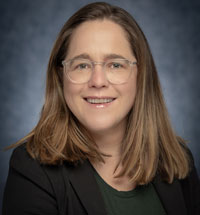 Rebecca Kasper
Rebecca Kasper
Former Chief of Staff, Loan Programs Office, U.S. Department of Energy
Rebecca Kasper served as chief of staff to the Loan Programs Office (LPO) at the US Department of Energy from October 2023 to January 2025. In this capacity, she oversaw LPO’s $400 billion fund of loans geared toward clean energy and advanced decarbonizing technology.
Before this position, she served as the special assistant to the president for climate and science in the Presidential Personnel Office at the White House. She joined the Biden-Harris administration as an advisor in the Office of Congressional and Legislative Affairs at the US Department of the Interior. She also served in finance roles for the Presidential Inaugural Committee and Biden for President and previously worked for US Senators Kyrsten Sinema (AZ) and Jon Tester (MT).
Kasper is from Richmond, VA, and is a graduate of Sewanee: The University of the South.
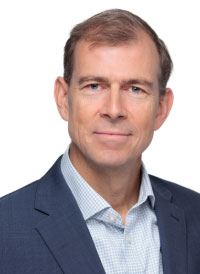 Nathaniel (Nat) Keohane
Nathaniel (Nat) Keohane
President, Center for Climate and Energy Solutions (C2ES)
Nathaniel Keohane is president of the Center for Climate and Energy Solutions (C2ES), a widely respected, nonpartisan nonprofit organization based in Washington, D.C., that works with policymakers and leading businesses to accelerate the transition to a thriving, just, and resilient net-zero emissions economy. Keohane is a globally recognized expert on climate policy, carbon markets, and environmental economics. He has three decades of climate, energy and environmental policy experience in academia, government, and the non-profit sector, including at Environmental Defense Fund, where he held a range of roles including Chief Economist and Senior Vice President for Climate; in the White House, as Special Assistant to President Obama for Energy and Environment in the National Economic Council (2011–2012); and, earlier in his career, as assistant and then associate professor of economics at the Yale School of Management. He holds a Ph.D. from Harvard and a B.A. from Yale.
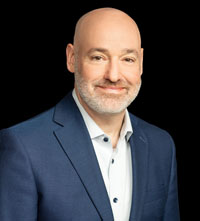 Frank J. Macchiarola
Frank J. Macchiarola
Chief Advocacy Officer, American Clean Power Association
Frank J. Macchiarola is the chief advocacy officer of American Clean Power (ACP). In this role he leads the clean power industry’s advocacy function, including ACP’s government affairs and political engagement at the federal and state level. Prior to joining ACP, Macchiarola served as senior vice president of policy, economics, and regulatory affairs at the American Petroleum Institute, and executive vice president of government affairs at America’s Natural Gas Alliance. Earlier in his career, Macchiarola served as staff director of the U.S. Senate Committee on Energy and Natural Resources and the U.S. Senate Committee on Health, Education, Labor, and Pensions. He was also a partner in the Policy Resolution Group at Bracewell LLP.
Macchiarola currently serves as a member of the board of directors of the National Brain Tumor Society, and he was previously an associate member of the U.S. Commodity Futures Trading Commission’s Energy & Environmental Markets Advisory Committee. Frank was twice recognized by National Journal as a top Capitol Hill staff member, and in 2022 he was named by Washingtonian as one of the 500 most influential people shaping public policy. Macchiarola earned his J.D. from New York University School of Law, M.P.Aff. from the Lyndon B. Johnson School of Public Affairs at The University of Texas at Austin, and A.B. in History from College of the Holy Cross.
 Taite McDonald
Taite McDonald
Partner, Holland & Knight LLP
Taite R. McDonald is cochair of the Energy Transition Industry Sector Group and leader of the firm’s Clean Technology Funding and Finance Team in Holland & Knight's Washington, D.C., office. McDonald focuses her practice on government clean technology funding and finance loan guarantees and grant programs. She is especially well versed in running complex, cross-government matters with intricate legal, policy and financing components.
McDonald provides counsel to companies of all sizes, from early stage startups to Fortune 100 companies and large utilities. Most notably, McDonald's team has helped companies win approximately four dozen awards totaling more than $4 billion in nondilutive grant funding from the U.S. Department of Energy (DOE). McDonald's team has also helped nearly a dozen of the previous noted awards successfully navigate the government grant negotiation process. Additionally, due to her deep programmatic experience spanning over a decade, she has successfully represented nearly a dozen clients in navigating the DOE Loan Program to obtain conditional commitments in excess of $9 billion. McDonald's experience also includes a number of successful advocacy campaigns to fund, improve and create many of the programs from which she has helped clients successfully obtain funding.
In 2019, McDonald was selected as a Holland & Knight Rising Star. In 2021, Law360 named her a Rising Star in its annual publication honoring top lawyers under 40 for her bipartisan work with Congress, agencies, and applicants between 2016 and 2020 to unlock the $40 billion of previously stranded capital in the DOE Loan Program. In 2021, McDonald was also named by Business Insider as a top lawyer advising electric vehicle companies.
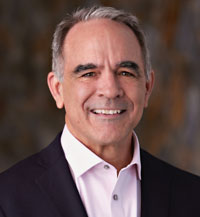 Brian Murray
Brian Murray
Director, Nicholas Institute for Energy, Environment & Sustainability and Research Professor, Nicholas School of the Environment and Sanford School of Public Policy, Duke University
Brian Murray, Ph.D., has led the Nicholas Institute since 2021, when the organization was created by the merger of the Duke University Energy Initiative and Nicholas Institute for Environmental Policy Solutions. Previously, Murray led the Energy Initiative from 2016–2021 and was the director for economic analysis at the Nicholas Institute from 2006–2017. In 2015, Murray was a Fulbright Scholar in Environment and Economy at Canada's University of Ottawa.
Murray is widely recognized for his research on the economics of energy policy, particularly as it relates to efforts to mitigate climate change risk. He has written about the design and assessment of economic incentive mechanisms for decarbonizing the economy such as carbon tax, cap-and-trade, directed tax credits, and tradable performance standards, as well as policies affecting the markets for renewable energy and sustainable land use.
Prior to working at Duke, Murray served as director of the Center for Regulatory Economics and Policy Research at RTI International. Murray earned a bachelor’s degree in economics and finance at the University of Delaware and a master’s degree and doctoral degree in resource economics and policy at Duke University.
 Megan O’Connor
Megan O’Connor
Cofounder and CEO, Nth Cycle
Megan O’Connor, Ph.D., founded and heads Nth Cycle, a modern metal refining company transforming the clean energy transition through sustainable, domestic production of critical metals. Leveraging her expertise in environmental chemistry, O’Connor led the development of the company’s patented electro-extraction technology now deployed in Nth Cycle’s revolutionary Oyster metal refining system. Nth Cycle has raised more than $60 million and commercialized its technology in just six years, becoming the first company in the United States to produce premium nickel cobalt mixed hydroxide precipitate—a mandatory component for electric vehicles, renewable energy, consumer technology, and defense applications.
O’Connor graduated with a degree in chemistry from Union College in 2012 and earned her Ph.D. in environmental engineering from Duke University in 2017. She cofounded Nth Cycle the same year and began her company’s journey as an entrepreneurial fellow in the Innovation Crossroads program at Oak Ridge National Laboratory before moving the headquarters to Massachusetts in 2020. O’Connor has received global recognition for her leadership, including Forbes’ “30 Under 30” in Energy (2019), Grist50 (2022), Bloomberg’s New Energy Finance Pioneer (2023), and TIME100’s Most Influential Climate Leaders in Business as an Innovator (2024).
 Akash Patel
Akash Patel
Chief Financial Officer, Net Power
Akash Patel has more than 20 years of finance experience, with expertise in mergers and acquisitions (M&A) and capital-raising within the energy industry. Since joining Net Power as CFO in 2020, Patel has been responsible for all strategic financing activities, corporate build-out, and leading the company through its go-public transaction, finalized in June 2023. Patel worked in Barclays’ investment banking division from 2010 to 2020, completing more than $100 billion in transactions across M&A, equity, and debt. Prior to Barclays, Patel held various roles at Citi and KPMG. Patel holds a bachelor’s degree from Boston University and an M.B.A. from Duke University.
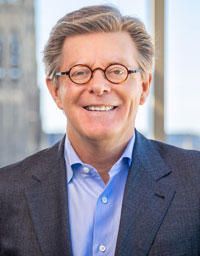 Vincent E. Price
Vincent E. Price
President, Duke University
Vincent Price is the 10th President of Duke University, where he is also Walter Hines Page Professor of Public Policy and Political Science in the Sanford School of Public Policy and Trinity College of Arts & Sciences. A leading global expert on public opinion, social influence, and political communication and former editor-in-chief of Public Opinion Quarterly, President Price came to Duke in 2017. Since arriving on campus, he has turned his attention to the future of the university, developing a strategic vision focused on five core principles: empowering people, transforming education, building community, forging partnerships, and engaging a global network. He has also overseen a series of major new initiatives at Duke—including continued strategic advancement of the arts; investing in Duke science and technology; launching a university-wide, impact-oriented approach to addressing climate change; implementing next-generation residential programs; advancing a comprehensive commitment to opportunity, access, and belonging; and broadening and deepening engagement with Durham and the surrounding region.
Prior to coming to Duke, Price served as provost of the University of Pennsylvania and was the Steven H. Chaffee Professor in the Annenberg School for Communication and Professor of Political Science in the School of Arts and Sciences. A member of the American Academy of Arts and Sciences, he earned his Ph.D. (1987) and M.A. (1985) in Communication from Stanford University and a B.A. magna cum laude (1979) in English from the University Honors Program at Santa Clara University.
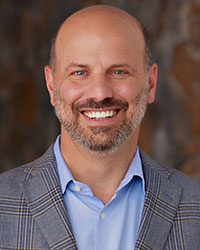 Tim Profeta
Tim Profeta
Senior Fellow, Nicholas Institute for Energy, Environment & Sustainability and Associate Professor of the Practice, Sanford School of Public Policy, Duke University
In 2023, Tim Profeta returned to Duke from two years of service at the US Environmental Protection Agency (EPA), where he served as the special counsel for the power sector and a senior advisor. At the agency, Profeta had a lead role in the development of the regulatory strategy affecting the power sector, including the recent proposed greenhouse gas regulations, served as a liaison between the agency and other federal departments and agencies regarding power sector policies, and took an instrumental role in the design of several agency programs that were authorized in the 2022 Inflation Reduction Act. Prior to his tenure at the EPA, Profeta was the founding director of the Nicholas Institute for Environmental Policy Solutions, which merged with the Duke University Energy Initiative in 2021 to create the Nicholas Institute for Energy, Environment & Sustainability. Since its creation in 2005, the Nicholas Institute has grown into a major nonpartisan player in key environmental debates, serving both the public and private sectors with sound understanding of complex environmental issues.
Prior to his arrival at Duke, Profeta served as counsel for the environment to Senator. Joseph Lieberman and was a principal architect of the Lieberman-McCain Climate Stewardship Act of 2003. He also represented Lieberman in legislative negotiations pertaining to environmental and energy issues, as well as coordinating the senator’s energy and environmental portfolio during his runs for national office. Profeta has continued to build on his Washington experience to engage in the most pertinent debates surrounding climate change and energy. Profeta is a member of the Climate Action Reserve Board of Directors and is a member of The American Law Institute. Profeta earned a J.D., magna cum laude, and a master's in environmental management in resource ecology from Duke in 1997 and a bachelor's degree in political science from Yale University in 1992.
 Benjamin Schwartz
Benjamin Schwartz
Managing Head of Infrastructure Partnerships and Policy, OpenAI
Benjamin Schwartz has 20+ years of international experience in public policy, strategic communication, and technology partnerships, complemented by sales and management work leading teams to grow programs and business. He is a published author and contributor to a variety of business and popular media. He earned a B.A. in political science and government from Swarthmore University and a master’s in international relations and international economics from Johns Hopkins.
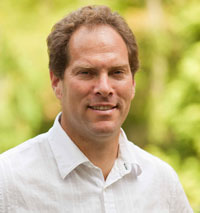 Jason Scott
Jason Scott
Executive-in-Residence, Department of Economics at Duke University; Partner and Executive-in-Residence, Spring Lane Capital; Senior Advisor, Renewable Resource Group
Jason Scott coteaches the course “Investing in Climate Solutions” at Duke and serves as partner and executive-in-residence at private equity firm Spring Lane Capital, which invests in sustainable and renewable infrastructure. He is also senior advisor to Renewable Resource Group, an asset manager focused on sustainable agriculture, water resources, renewables, and other natural resources, and cochair of the CREO Syndicate, a nonprofit supporting family offices in catalyzing investments into climate and sustainability solutions at scale.
Scott cofounded and is on the board of Encourage Capital. Prior to Encourage, Scott was a founding director and investment analyst at Generation Investment Management, cofounded by David Blood and former Vice President Al Gore. Scott helped build the firm and its products, investing in global equities and climate change solutions, respectively. Scott has also worked with Acumen Fund, Flatiron Future Fund/Foundation, and New Philanthropy Capital. He has founded several nonprofits and political organizations related to youth development, climate policy, and advocacy. He is a cofounder and board member of Clean Energy for America, the Frankfurt Zoological Society–US, and was a founder of youth development nonprofit Public Allies. Scott earned a B.A. from Duke University, cum laude, and a joint M.B.A. with honors from Columbia Business School and London Business School.
 Alexandra Bailey Smith
Alexandra Bailey Smith
Strategy Manager, Fervo
Alex Smith leads a team driving diversification opportunities, strategic initiatives, and corporate strategy at Fervo. She previously worked in upstream operations, megacapital projects, and technology ventures roles for Chevron both domestically and internationally. She holds an M.B.A. from Harvard Business School and a B.S. in chemical engineering from the University of Texas at Austin.
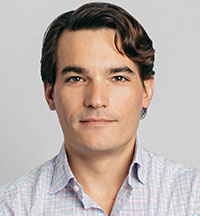 Peter Smith
Peter Smith
Managing Director, EQT Partners
Peter Smith is a managing director at EQT Partners, focusing on infrastructure investments in the energy and transportation sectors. Additionally, he is actively involved in launching EQT's transition infrastructure strategy, which will provide capital, as well as industrial, technological, and sustainability expertise to scale businesses and support the transition to a decarbonized and climate-resilient future. Prior to joining EQT, Smith worked at Brookfield. He graduated from the University of Virginia with a bachelor’s degree in classics and economics and from the Fuqua School of Business at Duke University with a master's of management studies.
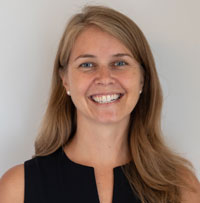 Kate Steel
Kate Steel
Cofounder & CEO, Nithio
Kate Steel is the cofounder and CEO of Nithio, a startup focused on financing energy access in Africa. Previously she was the director of the Energy Office at Power Africa (USAID), the US Government–led partnership to double electricity access in sub-Saharan Africa. Before joining USAID, she focused on renewable energy and energy access investments in Africa and South Asia at Google and worked on grid and off-grid energy access in Africa and South Asia, including managing Lighting Africa, at the World Bank.
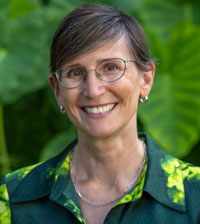 Toddi Steelman
Toddi Steelman
Vice President and Vice Provost for Climate and Sustainability, Duke University
Toddi Steelman, Ph.D., is the administrative and academic lead for the Duke Climate Commitment—a university-wide initiative to unite Duke’s education, research, operations, and public service missions to engage the entire community in the pursuit of climate change solutions. She previously served as Stanback Dean of the Nicholas School of the Environment (2018–2023).
An American Association for the Advancement of Science Fellow, Steelman is best known as a wildland fire expert and has brought her expertise to bear in a variety of venues including the Royal Society (UK), National Academy of Sciences (US), and as an invited keynote speaker in Portugal, Canada, Germany, Australia, and the United States. She a past president of the International Association of Wildland Fire. Her research agenda has focused on understanding community responses to wildfire, wildland fire communication and how communities and agencies interact for more effective wildfire management on large, interjurisdictionally complex wildfires. The author of four books, Steelman has published extensively in peer-reviewed journals, as well as opinion and editorial pieces in Nature, the Globe and Mail, The Hill and the Los Angeles Times.
 Vijay Swarup
Vijay Swarup
Senior Director, Climate Strategy & Technology, ExxonMobil
Vijay Swarup currently oversees the corporation’s strategy to reduce greenhouse gas emissions and address climate change. This includes climate policy and advocacy initiatives, along with the interplay between policy and the advancement and implementation of technology. Swarup has been with ExxonMobil for more than 30 years and has held a variety of leadership roles in both business and technology functions. From 2014–2022, he headed the research and development team, overseeing a research portfolio that focused on groundbreaking initiatives in biofuels, carbon capture, direct air capture, and hydrogen.
Swarup has a B.S. in chemical engineering and chemistry from Purdue University and a Ph.D. in chemical engineering from Rutgers University. He serves on the National Academies Board on Chemical Sciences Technology and the Rutgers Industrial Advisory Board. He previously served on the Advisory Board for the MIT Energy Initiative, Singapore Energy Center, Princeton Andlinger Center for Energy and Environment, India International Think Tank for Energy and The Liberty Science Center.
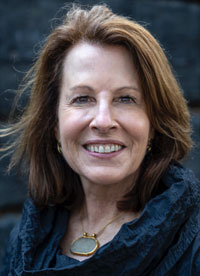 Alison Taylor
Alison Taylor
Climate Leader in Residence, Duke University
Alison Taylor is a climate leader in residence at Duke University. The residency program brings top thought leaders to campus to share insights and expertise, sparking discussion and action to advance climate solutions. Taylor previously served as chief sustainability officer at ADM, overseeing the company’s global sustainability strategy and working closely with the Sustainability and Corporate Responsibility Committee of ADM's Board of Directors. Over nearly eight years at ADM, she led many facets of the company's progress toward achievement of the UN Sustainable Development Goals, including Zero Hunger and Climate Action. She guided implementation of the company’s Respect for Human Rights policy, No-Deforestation policy, Strive 35 environmental stewardship program, and ADM's philanthropic efforts through ADM Cares.
Her time at ADM followed more than a decade at the global technology company Siemens, where she was vice president and chief sustainability officer of the Americas. Taylor also worked on Capitol Hill as counsel for the U.S. House of Representatives Committee on Energy and Commerce, and chief counsel of the U.S. Senate Committee on Environment and Public Works. She was previously a partner in the law firm now known as Davis, Graham and Stubbs, LLC.
Taylor currently serves on the boards of the Nicholas Institute at Duke University, the Peggy Notebaert Nature Museum in Chicago, the Nature Conservancy-Illinois, and the E.O. Wilson Biodiversity Foundation. She holds a bachelor’s degree from Duke University and a J.D. from the University of Denver.
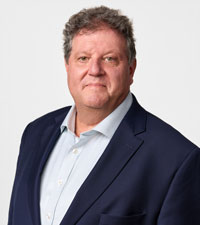 Eric Toone
Eric Toone
Chief Technology Officer, Breakthrough Energy Ventures
Eric Toone began his career at Duke in 1990 and is currently professor of chemistry and professor of biochemistry. Toone has authored more than 220 original papers, reviews, book chapters, and abstracts in physical organic and biophysical chemistry. He is also listed as an inventor on more than 20 patents in a range of biomedical fields and is a scientific founder of three research-based pharmaceutical companies. From 2009 to 2012 Toone was detailed to the US Department of Energy’s Advanced Research Projects Agency–Energy (ARPA-E). During that time, he served both as program director and deputy director for technology before leading the agency in 2012.
Toone returned to Duke in 2013 and served as vice provost and director of the Duke University Innovation and Entrepreneurship Initiative, an initiative designed to foster entrepreneurship across the entire university community, until May 2017. Toone is currently the executive managing director for technology at Breakthrough Energy Ventures, a billion-dollar investment fund of the Breakthrough Energy Coalition, a group of the world's most influential leaders assembled by Bill Gates to advance clean energy technologies. Toone received his doctoral degree in Chemistry from the University of Toronto in 1988 and completed post-doctoral studies at Harvard University.
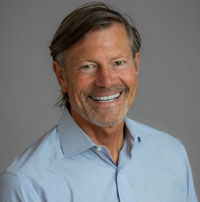 Jeffrey Ubben
Jeffrey Ubben
Founder and Managing Partner, Inclusive Capital Partners, L.P.
Jeff Ubben has served on more than 20 public company boards throughout his career and currently serves on the boards of Bayer A.G. and the ExxonMobil Corporation. Ubben also serves on the boards of Noodle Corporation, Duke University, the World Wildlife Fund, and several other private companies. He has a B.A. from Duke University and an M.B.A. from the Kellogg School of Management at Northwestern University.
 Chris Wedding
Chris Wedding
Executive in Residence at the Fuqua School of Business, Nicholas School of the Environment, Department of Economics, and Innovation and Entrepreneurship Program, Duke University
Chris Wedding is an executive in residence at Duke University’s Fuqua School of Business, Nicholas School of the Environment, Department of Economics, and Innovation and Entrepreneurship. In addition, he is CEO of Entrepreneurs for Impact (EFI), the biggest climate tech CEO peer group in North America; a weekly podcast host and newsletter author at via EFI; cofounder of Terraset (carbon removal); senior advisor at Javelin Capital (clean energy investment banking); board member at World Tree (regenerative forestry); board advisor at DG Matrix (solid-state transformer in power electronics); former environmental private equity investor; and former cleantech investment banker.
 Bill Woodcock
Bill Woodcock
Secretary General, Packet Clearing House
Bill Woodcock is the secretary general of Packet Clearing House, the international nongovernmental organization that builds and supports critical internet infrastructure, including internet exchange points and the core of the domain name system. Since entering the internet industry in 1985, Woodcock has helped establish nearly 300 internet exchange points. In 1989, Woodcock developed the anycast routing technique that now protects the domain name system. In 1998 he was one of the principal drivers of California 17538.4, the world's first anti-spam legislation. Woodcock was principal author of the Multicast DNS and Operator Requirements of Infrastructure Management Methods IETF drafts. In 2002 he co-founded INOC-DBA, the security-coordination hotline system that interconnects the network operations centers of more than three thousand ISPs around the world. And in 2007, Woodcock was one of the two international liaisons deployed by NSP-Sec to the Estonian CERT during the Russian cyber-attack. In 2011, Woodcock authored the first survey of internet interconnection agreements, as input to the Organization for Economic Co-operation and Development’s analysis of the Internet economy. Bill serves on the Global Commission on the Stability of Cyberspace, and the Commission on Caribbean Communications Resilience. He is also on the board of directors of the M3AA Foundation and was on the board of the American Registry for Internet Numbers for 15 years. Now, Woodcock’s work focuses principally on the security and economic stability of critical internet infrastructure.
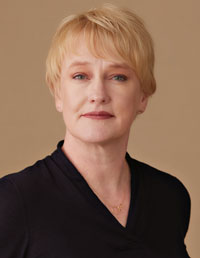 Alix Zwane
Alix Zwane
Director of Research and Engagement Strategy, Nicholas Institute for Energy, Environment & Sustainability, Duke University
In addition to her directorship at the Nicholas Institute, Alix Zwane is also a Newhouse Visiting Professor of the Practice at Duke University’s Sanford School of Public Policy. Zwane has more than 20 years of experience advancing the agenda of evidence-based aid and international development as an investor, a social entrepreneur, and an innovator. Prior to joining the Nicholas Institute, Zwane was the first chief executive officer of the Global Innovation Fund, a hybrid investment vehicle that accelerates evidence-based innovation through early-stage debt and equity investing, as well as grantmaking. She was the first employee and executive director at Evidence Action, a nonprofit that develops service delivery models to scale evidence-based programs. Zwane has also advocated for evidence-based philanthropy at the Bill & Melinda Gates Foundation and Google.org and served on the faculty of the department of agricultural and resource economics at University of California, Berkeley.
Zwane holds a Ph.D. in public policy from Harvard University and is a World Economic Forum Young Global Leader. She has served appointments as a non-resident fellow at the Center for Global Development and at the Jackson School of Global Affairs at Yale University.

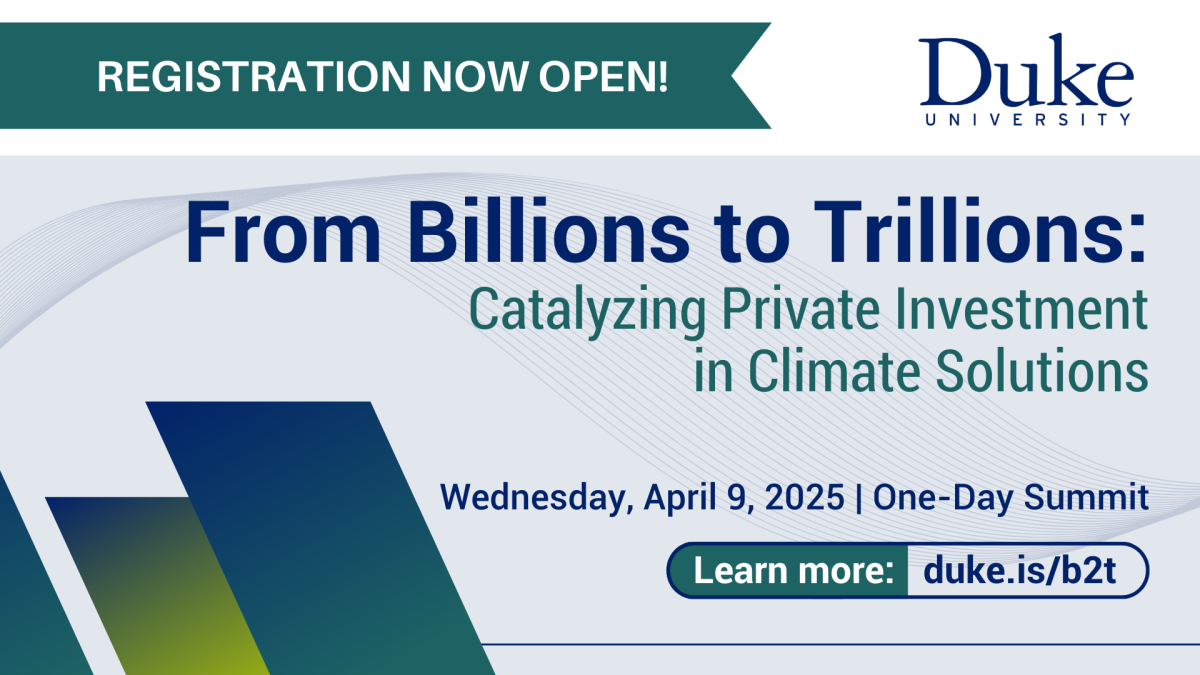
 Jeff Bladen
Jeff Bladen Lori Bennear
Lori Bennear David Brown
David Brown Scott L. Caruso
Scott L. Caruso Aaron (Ronnie) Chatterji
Aaron (Ronnie) Chatterji Anir Chowdhury
Anir Chowdhury
 David Crane
David Crane William Demas
William Demas Anmay Dittman
Anmay Dittman Chip Dunn
Chip Dunn Jackson Ewing
Jackson Ewing Steve Fleishman
Steve Fleishman Rebecca Kasper
Rebecca Kasper Nathaniel (Nat) Keohane
Nathaniel (Nat) Keohane Frank J. Macchiarola
Frank J. Macchiarola Taite McDonald
Taite McDonald Brian Murray
Brian Murray Megan O’Connor
Megan O’Connor Akash Patel
Akash Patel Vincent E. Price
Vincent E. Price Tim Profeta
Tim Profeta Benjamin Schwartz
Benjamin Schwartz Jason Scott
Jason Scott Alexandra Bailey Smith
Alexandra Bailey Smith Peter Smith
Peter Smith Kate Steel
Kate Steel Toddi Steelman
Toddi Steelman Vijay Swarup
Vijay Swarup Alison Taylor
Alison Taylor Eric Toone
Eric Toone Jeffrey Ubben
Jeffrey Ubben Chris Wedding
Chris Wedding Bill Woodcock
Bill Woodcock Alix Zwane
Alix Zwane